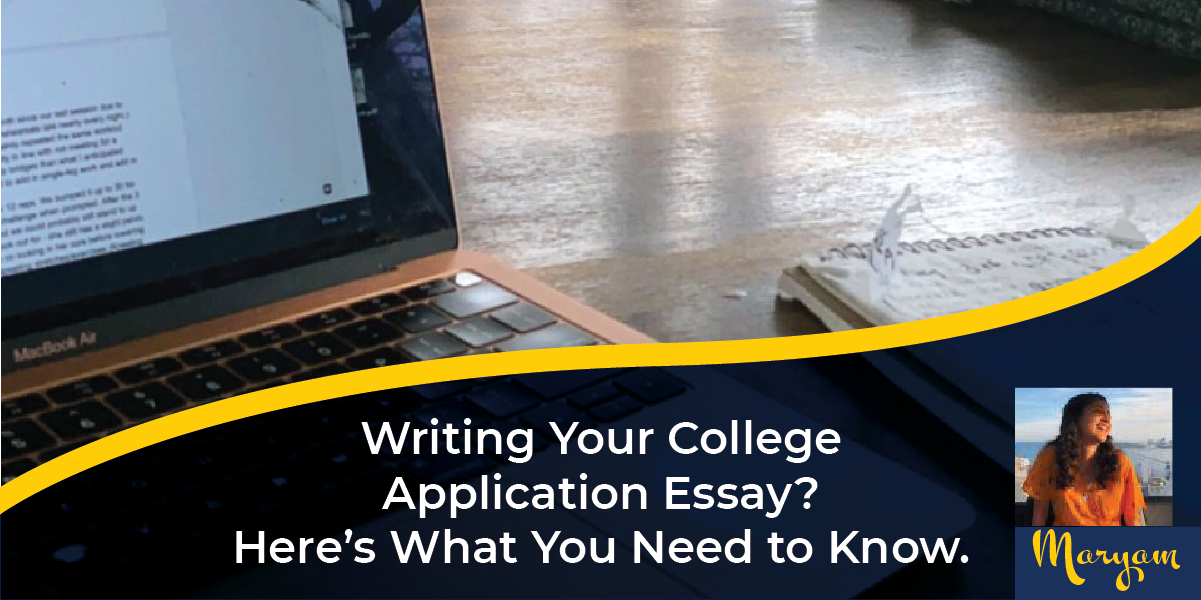Whether you're unsure where to start or going through the final edits of your Regular Decision application to U-M, read on for some tips on how to approach the college essays.
Applying to college isn't exactly the most vivacious activity you’ll ever partake in. For the most part, it’s stressful, time-consuming, and tedious. While I can’t guarantee a one-stop solution for getting into U-M or any other college, I can provide some general advice about how to approach the application process from my experience. For this blog, I’ll take you through tips on crafting one part of the U-M application: the essays. As you may be aware, U-M’s essay questions consist of the following prompts:
- Everyone belongs to many different communities and/or groups defined by (among other things) shared geography, religion, ethnicity, income, cuisine, interest, race, ideology, or intellectual heritage. Choose one of the communities to which you belong, and describe that community and your place within it.
- Describe the unique qualities that attract you to the specific undergraduate College or School (including preferred admission and dual degree programs) to which you are applying at the University of Michigan. How would that curriculum support your interests?
- One of the Common Application Essay Prompts or one of The Coalition Application Essay Prompts
Whether you're unsure where to start or going through final edits of your Regular Decision application to U-M (due Feb. 1), read on for tips on how to approach the college essays.
- Don’t Write, Brain Dump: If you're someone who hasn’t touched the surface of one or all of the essays yet, focus on getting words on a page instead of the more monumental task of curating a perfect essay. There’s no ideal way to approach any of the questions, but starting off with a few foundational ideas will make the final execution that much easier. Eventually, I recommend putting these ideas into digestible language, but getting started with a brain dump can lower the stakes of what might seem like an overwhelming task at first.
Consider the first question on community. Instead of focusing on the angle you want to tackle with the question, simply start by creating a list of communities that you are a part of. Similarly, with the second question, begin by researching and listing the characteristics of your prospective school or college.
- Answer the Question: Brain dumps are great to get words on the page. But once you reach the stage where you have an idea of your direction and scope, revisit your response to make sure it speaks to the question being asked. These questions are left broad enough to allow you to speak to your unique qualities and history, but it’s still easy to lose sight of whether you're answering them.
- Tell Your Story: Keeping your essays unique to your identity and life trajectory is a piece of advice you’ve probably already encountered. For instance, my mentors and college counselors always used to say not to write about generic topics that could apply to many applicants for the Common App, like athletics (or worse, an athletics injury). (Fun fact: I wrote about athletics.)
But rather than create a list of do’s and don’ts, I’ll share the simplest and best piece of advice I received when writing my essays: Write a story that couldn’t apply to someone else. Another way to put it: If you removed your name from your application and replaced it with someone else’s, your essay shouldn’t be able to apply to them.
- Take a Break: Once you're in the final stages of completing your admissions essays, the best gift you can provide yourself is a break from fine-tuning your submission. After you’ve written a substantive first or second draft, take a week or more off of looking at your essays so that you can return to revise it with fresh eyes (time permitting). You’ll be able to read it anew and catch mistakes you may miss when editing within a day or so of finalizing your first draft. Constantly editing your essays until you’re numb could provide you with diminishing returns over time, so tap into the gift of fresh eyes
- Solicit Feedback From Others: Particularly if you don’t have time to take a break before editing, reach out to mentors, friends, family, and/or teachers who can provide constructive feedback on your essays. For example, sharing your essay with someone who may not know you well helps to ensure your essay would make sense to an admissions counselor. At the end of the day, you don’t have to take anyone’s advice, but it’s still advantageous to know about both the strengths and shortcomings of your essays when you still have the opportunity to revise it. (Disclaimer: No, I’m not recommending that you have others write your essays for you, either!)
- Try Not to Stress: Sometimes it can feel like college applications ask too much of you: How are you supposed to know who you are or what your academic interests are, especially after (probably) a year or so of online classes? Isn’t that what college is for?
Keep in mind that you don’t need to know everything about yourself to apply to college. Use the Common App as an opportunity to explore different offerings by universities and colleges, uncover some of your interests, and reflect about what you care about. You might only be 51% on board with an academic area of interest, but that’s still one step closer to honing in on what you truly want to pursue.
As the Regular Decision deadline approaches, remember that you have the reins over how you tell your story. Whether or not you apply these tips, be confident in your approach to the essays. Best of luck with your application!



